When the Nationals’ Daniel Murphy finished runner-up in National League MVP bal-loting last year and the Astros’ Jose Altuve placed third in the American League, it opened eyes in the industry.

The Rockies’ D.J LeMahieu hit .348 to win the NL batting title, and the Twins’ Brian Dozier clubbed 42 home runs to rank third in the AL.
The Mariners’ Robinson Cano hit .298 with a career-high 39 homers, and the superstar looked more like he was 27 than 33, his actual age.
People inside and outside the game want to know: Was the preponderance of dominating offensive seasons by second basemen in 2016 just an anomaly? Or is second base now a dominant offensive position?
Several theories abound, though the prevailing one is that in today’s game many of the best players just happen to play the keystone spot.
Power plays big in the post-steroid era, with some teams sacrificing a great glove for a player who can hit 20 homers a year. There’s also a difference of opinion as to what teams look for at second.
“The game goes in waves,” an scout for an AL club said. “It’s hard to say it’s a natural power position now. You always had a few guys who played there and had power, like Joe Morgan and Bret Boone. But I think it’s just a phase where a lot of the best players coming up right now are second basemen.
“You have certain positions where you look for power, like at first base or corner outfield. But at second you’re looking for a complete player with good actions in the field and a good line-drive stroke. Then if the power is there that’s a bonus.”
Twins vice president of player personnel Mike Radcliff had a different view and sees the change in the big leagues re-shaping the way amateur players are evaluated.
This story is from the {{IssueName}} edition of {{MagazineName}}.
Start your 7-day Magzter GOLD free trial to access thousands of curated premium stories, and 9,000+ magazines and newspapers.
Already a subscriber ? Sign In
This story is from the {{IssueName}} edition of {{MagazineName}}.
Start your 7-day Magzter GOLD free trial to access thousands of curated premium stories, and 9,000+ magazines and newspapers.
Already a subscriber? Sign In
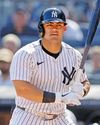
THE SERVICE TIME CONUNDRUM
MLB’s byzantine service time rules cloud rookie status and now PPI eligibility
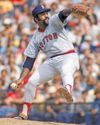
LUIS TIANT WAS MLB'S MOST SUCCESSFUL CUBAN PITCHER
On a scouting trip to Cuba in 1957, Bobby Avila discovered 16-year-old righthander Luis Tiant on the island's Juvenile League all-star team.
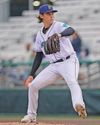
ORGANIZATION REPORT
Outfielder Heston Kjerstad's career has been unique, to say the least.
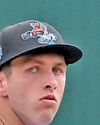
TOP 10 NL EAST
From the moment Thomas White stepped on a high school mound, he was viewed as the top lefthander available in the 2023 draft.
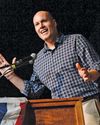
PREPARATION PAYS OFF
lowa politician J.D. Scholten makes a surprising return to pro ball at age 44
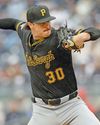
MAKING THE GRADE
Assessing the future value of graduated National League prospects
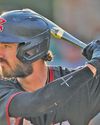
TOP 10 NL WEST
Even in high school, Bryce Eldridge could hit the ball a mile. The 6-foot-7 righthander could also touch 96 mph off the mound.
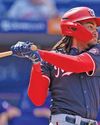
Wood Has Towering Upside- Nationals rookie James Wood also stands 6-foot-7 and also has game-changing power.
Aaron Judge and Oneil Cruz are 6-foot7 sluggers who stand out for their power in this year’s MLB Best Tools voting. Wood spent half of this season with Triple-A Rochester before making his MLB debut on July 1. While he was in the International League, he captured managers’ attention. Wood unanimously won Best Power Prospect and also claimed Most Exciting Player in a survey of league skippers. Wood hit .353/.463/.595 with 10 home runs in 52 games for Rochester. His .242 isolated slugging was the best for a player 21 or younger at Triple-A this season.
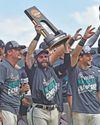
ROAD BLOCK?
Scholarship expansion puts mid-majors at a major disadvantage on the road to Omaha

ROYALS REVIVAL
A revamped and rejuvenated farm system has Kansas City ready to rebound